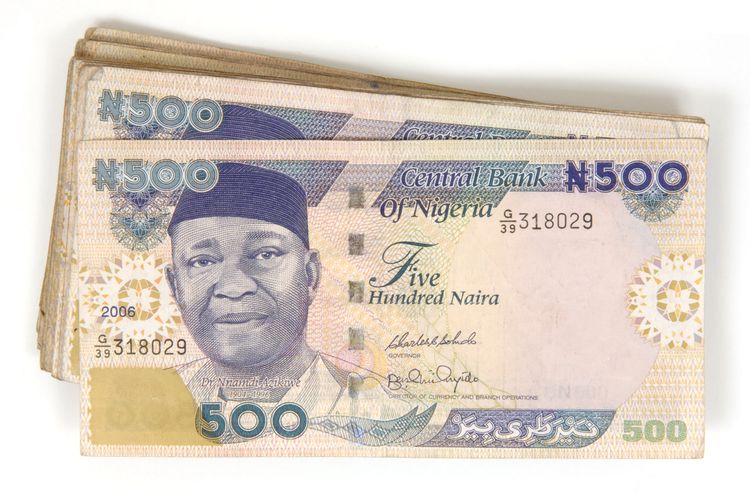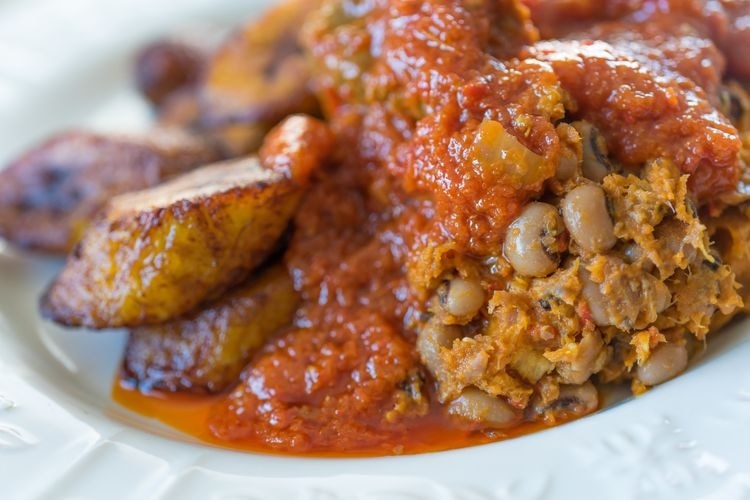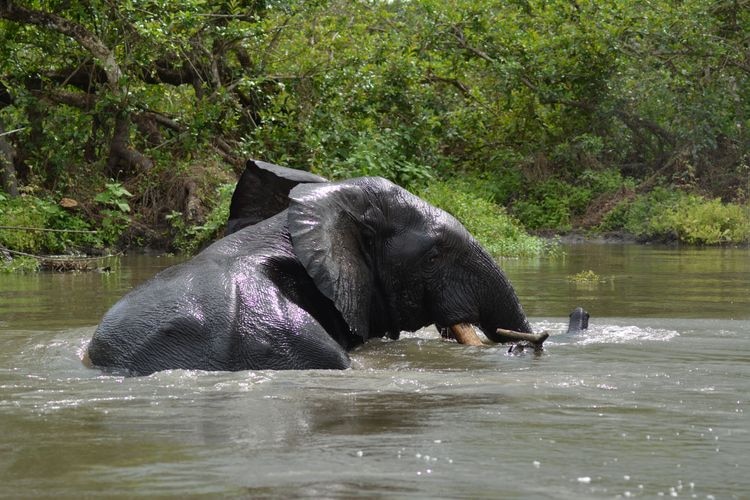Nigeria Travel Tips and Information
Official Name
Federal Republic of Nigeria
Capital
Abuja
Population
Country Code
Approximately 182.2 million
NG
Country Code (international calls)
+234
The flight time to Nigeria is approximately 12~14 hours. Check the climate, currency, religion, manners, other information of Nigeria below. Wishing you pleasant travels to Nigeria.
Nigeria is a federal republic located in West Africa. It shares borders with Cameroon to the east, Chad to the northeast, and Benin to the west. It is famous for its large population, ranking 7th in the world after Pakistan, and is the most populous country in Africa. Additionally, Nigeria is an oil-rich nation and one of Africa's leading economic powers.
Local Climate / Weather
Climate Overview: Nigeria has a diverse climate, which varies by region. The southern part of the country, particularly along the coast, has a tropical climate with high humidity and rainfall throughout the year. The central and northern regions experience a more arid climate, with the north being characterized by a dry, hot season and a shorter rainy season. The overall climate is influenced by the equator, with temperatures typically ranging between 25°C to 35°C (77°F to 95°F) year-round. Seasonal Travel Advice Rainy Season (April to October): The rainy season is most prominent in the southern and central regions, with high humidity and regular downpours. While the rains can make some areas difficult to navigate, this season also brings lush landscapes, especially in the southern and coastal areas, making it ideal for nature enthusiasts. Dry Season (November to March): The dry season is the best time to visit most parts of the country, especially the northern and central regions. The weather is warmer, with less rain, making it suitable for outdoor activities and sightseeing. However, temperatures in the northern areas can rise significantly, so be prepared for heat and dry conditions. Major Events and Festivals Eid al-Fitr and Eid al-Adha: As a predominantly Muslim country, Nigeria celebrates these Islamic holidays with large gatherings, prayers, and celebrations, particularly in the northern region. The dates vary each year depending on the Islamic lunar calendar. Ogun Festival: Held in the southwestern part of Nigeria, this festival celebrates Ogun, the god of iron and war. It is marked by traditional dances, music, and rituals, offering a glimpse into Nigerian cultural heritage. New Yam Festival: Celebrated in the southeastern region, the New Yam Festival is an important event in the Igbo community. It marks the beginning of the harvest season and is marked by feasts, dances, and prayers. Lagos Carnival: Taking place in the commercial capital, Lagos, this lively event showcases Nigerian music, dance, fashion, and art, attracting tourists from around the world.
Currency & Tipping
Currency
The official currency of Nigeria is the Nigerian Naira (NGN), with denominations including coins (50 kobo, 1 naira) and banknotes (5, 10, 20, 50, 100, 200, 500, and 1000 naira). Banknotes are more commonly used than coins for everyday transactions. Currency exchange can be done at banks, exchange bureaus, and some hotels in Nigeria, with major foreign currencies like USD, EUR, and GBP being widely accepted. It is advisable to exchange currency at reputable locations to get the best rates and avoid scams.
Tipping
Tipping is not mandatory in Nigeria, but it is appreciated for good service, especially in restaurants and hotels, typically ranging from 5% to 10% of the bill. In local markets or with service providers, small tips of 100 to 500 naira are common for assistance.
Useful Travel Information

Voltage & Electrical Outlets
Nigeria operates on a 230V supply voltage and uses Type D and Type G plugs with three rectangular prongs. If your devices use a different plug type or voltage, you will need an adapter and possibly a voltage converter. It's important to check your device’s voltage compatibility to avoid damage during use.

Internet Connectivity
Internet access is widely available in major cities like Lagos and Abuja, with Wi-Fi offered in hotels, cafes, and some public spaces. Mobile data is also common, and local SIM cards can be purchased for affordable rates with data plans. However, rural areas may have limited internet coverage, and speeds can vary.
Water for Consumption (Drinking Water)
It is recommended to drink bottled or purified water in Nigeria, as tap water may not be safe for consumption. Many hotels, restaurants, and shops sell bottled water, and it’s best to avoid ice unless you are sure it is made from purified water. Always check seals on bottled water to ensure it’s not tampered with.
Culture, Religion & Social Etiquette
Culture
Nigeria has a rich and diverse cultural heritage with over 250 ethnic groups, each with its own traditions, languages, and customs. Respect for elders, communal living, and hospitality are key aspects of Nigerian culture, and visitors should be open to experiencing these cultural nuances.
Religion
Nigeria is a religiously diverse country, with Islam practiced predominantly in the northern regions and Christianity in the south. Religion plays a central role in the lives of many Nigerians, and understanding local religious customs and holidays is important for respectful interactions.
Social Etiquette
Greetings are very important in Nigerian culture, with handshakes, hugs, and sometimes traditional bowing or kneeling being common forms of greeting depending on the region. It's important to show respect when interacting with others, especially with elders, and avoid discussing sensitive topics like politics or religion unless you are familiar with the person.
Food Culture
Nigeria’s cuisine is rich and diverse, with flavors influenced by its various ethnic groups. Popular dishes include jollof rice, pounded yam, and suya (spicy grilled meat), often enjoyed as street food across the country. For an authentic experience, try local restaurants like Bungalow Restaurant in Lagos or Terra Kulture in Abuja, where you can sample traditional Nigerian dishes in a welcoming setting.
Major Tourist Attractions & UNESCO World Heritage Sites
Major Tourist Attractions
Zuma Rock, located near Abuja, is perfect for hiking and offers stunning views, while Aso Rock is a must-see for nature enthusiasts. For history lovers, the Olumo Rock in Abeokuta provides both a cultural and scenic experience.
UNESCO World Heritage Sites
Nigeria is home to a variety of exciting tourist destinations and UNESCO World Heritage Sites. Explore the Ogbunike Caves, a UNESCO World Heritage Site known for its spiritual significance and unique limestone formations. Don't miss the chance to visit the National Museum in Lagos for a deeper understanding of Nigeria's rich history and cultural heritage, and enjoy activities like shopping at local markets or sampling street food along the way.
Travel FAQs
What is the security situation in Nigeria? What precautions should I take?
Nigeria has many areas with travel advisories, particularly in the northeastern states of Yobe, Borno, and Adamawa, where evacuation warnings have been issued. It is important to check the security level and confirm travel conditions before visiting.
Is English spoken in Nigeria?
English is widely spoken throughout Nigeria, making communication relatively easy.
What is the best season to visit Nigeria?
The best time to visit Nigeria is during March or October.
What is the most popular airport in Nigeria for flights?
The most popular airport is Murtala Muhammed International Airport in Lagos, Nigeria’s largest city.
What are the current travel conditions related to COVID-19 for Nigeria?
Proof of full vaccination is required for entry. However, some cities have travel advisories or evacuation warnings, so it is important to pay attention to the entry points.




